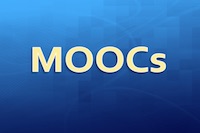Decision, Implementation, and Confirmation: Experiences of Instructors behind Tourism and Hospitality MOOCs
 As the popularity of Massive Open Online Courses (MOOCs) continues to grow, studies are emerging to investigate various topics in this area. Most have focused on the learners’ perspective, leaving a gap in the literature about MOOC instructors. The current research—conducted in the field of tourism and hospitality—explored early experiences of MOOC instructors as they progressed through three stages of the innovation-decision process: decision, implementation, and confirmation. The tourism and hospitality field was chosen because its related industries contribute significantly to global employment, and training is one of their critical success factors. MOOCs possess a good potential to benefit tourism and hospitality education, yet tourism and hospitality MOOCs are under-researched. Semi-structured interviews were conducted with six instructors who offered tourism and hospitality MOOCs between 2008 and 2015. Findings revealed that: (1) the instructors’ decisions to offer MOOCs were mostly influenced by their institutes’ interests in MOOCs; (2) when the instructors implemented MOOCs, a pattern of action emerged, which included six phases and one cross-phase element—prepare, design, develop, launch, deliver, and evaluate—and across phases—support and train; (3) most instructors chose to avoid risk in their adoption and implementation of the MOOCs, staying away from innovative teaching or learning activities such as peer-review assessments and collaborative activities; and (4) half of the instructors intended to repeat the experience of teaching in the MOOCs format in the future.
As the popularity of Massive Open Online Courses (MOOCs) continues to grow, studies are emerging to investigate various topics in this area. Most have focused on the learners’ perspective, leaving a gap in the literature about MOOC instructors. The current research—conducted in the field of tourism and hospitality—explored early experiences of MOOC instructors as they progressed through three stages of the innovation-decision process: decision, implementation, and confirmation. The tourism and hospitality field was chosen because its related industries contribute significantly to global employment, and training is one of their critical success factors. MOOCs possess a good potential to benefit tourism and hospitality education, yet tourism and hospitality MOOCs are under-researched. Semi-structured interviews were conducted with six instructors who offered tourism and hospitality MOOCs between 2008 and 2015. Findings revealed that: (1) the instructors’ decisions to offer MOOCs were mostly influenced by their institutes’ interests in MOOCs; (2) when the instructors implemented MOOCs, a pattern of action emerged, which included six phases and one cross-phase element—prepare, design, develop, launch, deliver, and evaluate—and across phases—support and train; (3) most instructors chose to avoid risk in their adoption and implementation of the MOOCs, staying away from innovative teaching or learning activities such as peer-review assessments and collaborative activities; and (4) half of the instructors intended to repeat the experience of teaching in the MOOCs format in the future.
International Review of Research in Open and Distributed Learning







